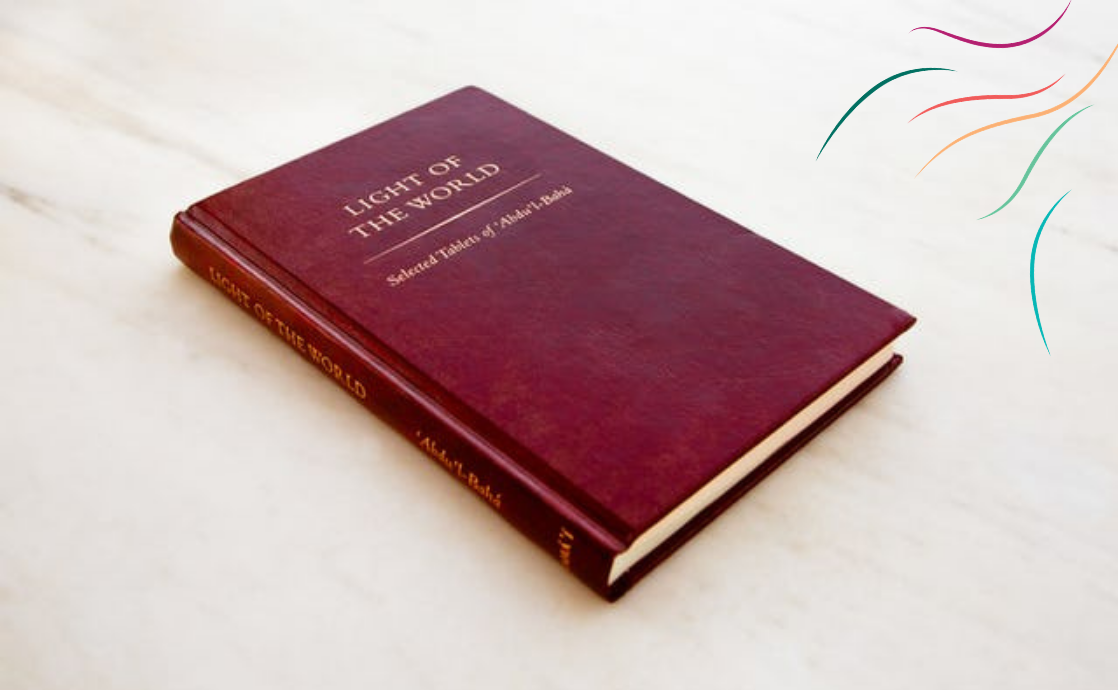The recent release of a new volume of writings by ‘Abdu’l-Bahá, the son of Bahá’u’lláh and a pivotal figure in the Bahá’í Faith, presents an opportunity to delve into his profound teachings and their implications for contemporary society. In exploring these texts, one may ponder: How can ‘Abdu’l-Bahá’s insights illuminate the myriad complexities of modern life? This inquiry invites both curiosity and a modicum of respite, for the teachings of ‘Abdu’l-Bahá challenge us to reflect critically on our roles as individuals and community members.
Foremost among ‘Abdu’l-Bahá’s contributions is the emphasis placed on the importance of unity—both at an individual and collective level. His writings continually underscore the necessity of transcending divisions, whether they be of race, religion, or nationality. This notion of unity is not merely a call for superficial harmony, but rather, a profound imperative for fostering a deep-seated sense of connection among humanity. The complexities of global crises, such as climate change and social injustice, amplify the urgency for solidarity. As such, readers are prompted to consider: Are we truly living the principles of oneness that ‘Abdu’l-Bahá espoused or merely echoing them in platitudes?
Furthermore, ‘Abdu’l-Bahá’s teachings extend to the significance of education as a transformative force. He asserted that the edifice of a just and progressive society rests upon the foundation of universal education, advocating for not only formal learning but also moral and spiritual development. With the onset of various global challenges, including increasing inequality, one might question the accessibility and inclusivity of educational systems today. Do modern educational paradigms adequately reflect the holistic approaches that ‘Abdu’l-Bahá envisioned? The task at hand is to evaluate whether contemporary education, which often prioritizes rote memorization and exam results, genuinely nurtures the virtues and character that are essential for personal and societal advancement.
In contemplating the role of service to humanity—a recurring theme in ‘Abdu’l-Bahá’s writings—one is enthralled by the idea that true fulfillment lies not in the pursuit of self-interest, but in the dedication to the welfare of others. He postulated that service is the highest expression of love and compassion. It stands to reason that in an era dominated by individualism and self-aggrandizement, the challenge becomes one of translating this profound concept into action. How can individuals navigate their personal aspirations while concurrently committing to the collective good? This duality poses a formidable challenge for the modern individual.
Moreover, ‘Abdu’l-Bahá fervently articulated the interconnectedness of science and religion, rejecting the notion that the two are fundamentally opposed. His perspective paved the way for a comprehensive worldview in which scientific inquiry complements spiritual understanding. In a contemporary context, particularly with the rise of anti-science sentiments, we are compelled to ask: How can we bridge the perceived chasm between empirical knowledge and spiritual wisdom? The writings provide profound insights into the necessity of balancing these two realms, urging us to cultivate an integrative approach towards understanding our existence.
Another critical facet of ‘Abdu’l-Bahá’s legacy lies in his advocacy for gender equality. His declarations emphasize that the advancement of society is inextricably linked to the elevation of women. As societies grapple with enduring disparities, the call for gender equality resonates louder than ever. This compels us to reflect upon: How do contemporary movements for gender equality align with the teachings of ‘Abdu’l-Bahá? The challenge becomes not only recognizing these teachings but actively employing them in our advocacy efforts. Bridging the gap between the writings and lived experience is essential.
In the realm of spirituality, ‘Abdu’l-Bahá emphasized the transformative power of prayer and meditation. He viewed these practices as essential tools for personal and communal growth. In an age of rapid distractions and relentless pace, individuals often neglect these formative practices. The pertinent question thus emerges: How do we cultivate a spiritual routine that aligns with ‘Abdu’l-Bahá’s insights amidst the cacophony of daily life? This challenge beckons a deeper inquiry into the integration of spirituality within our bustling existence.
In conclusion, the release of this new volume of ‘Abdu’l-Bahá’s writings acts as both a beacon and a mirror, reflecting the timeless wisdom of his teachings while illuminating the urgent challenges faced in contemporary society. As readers engage with these texts, they are invited not merely to absorb but to embody the profound principles articulated within. In doing so, we confront the playful yet poignant inquiries posed by his works. Are we willing to transform their insights into actionable change? The path forward beckons, urging a collective commitment to the virtues of unity, service, education, and equality as we navigate the complexities of existence in the modern world.
